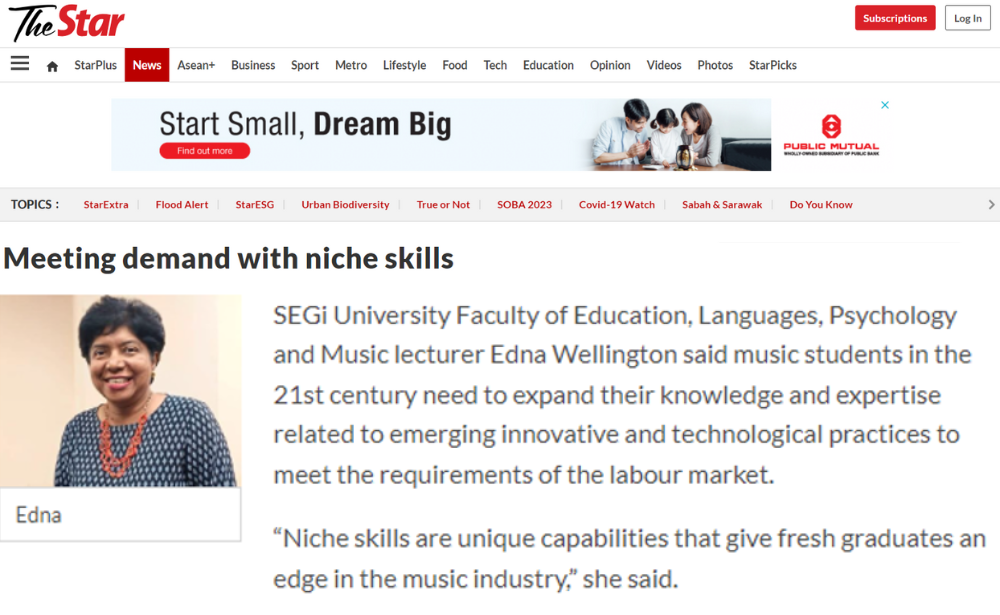Edna Wellington, a highly acclaimed music lecturer at SEGi University’s Faculty of Education, Languages, Psychology & Music (FoELPM), has been featured in a thought-provoking article titled “Meeting Demand with Niche Skills.” Published in the The STAR EDU pullout of the Sunday Star on January 14, 2024, this insightful piece sheds light on the crucial importance of developing niche skills for fresh graduates seeking to thrive in the competitive music industry.
Wellington’s article resonates with SEGi University’s unwavering commitment to providing quality education that equips students with the tools to excel in their chosen fields. By emphasising the cultivation of niche skills, the university empowers its graduates to stand out in the job market, aligning with the United Nations’ Sustainable Development Goal 4 (Quality Education) and Goal 10 (Reduced Inequalities).
In the article, Wellington draws upon her extensive expertise and industry experience to highlight the ever-evolving nature of the music industry, which demands a diverse set of specialized skills. From mastering cutting-edge recording techniques to understanding the intricacies of music production, marketing, and entrepreneurship, she underscores the importance of a well-rounded educational approach that nurtures versatility and adaptability.
With this thought-provoking article in a widely read publication like the STAR EDU, SEGi University further solidifies its position as a leader in music education and a champion of reducing inequalities in the industry. Wellington’s insights empower students to embrace their unique talents and develop specialised skills, unlocking a world of opportunities and fostering a more inclusive and diverse music landscape.
SEGi University’s proactive approach to nurturing niche skills and promoting quality education sets its graduates apart, enabling them to navigate the challenges of the music industry with confidence and creativity. Through initiatives like Wellington’s article, the university continues to redefine the boundaries of music education, equipping its students with the tools to shape the future of the industry and contribute to a more equitable and sustainable world.



